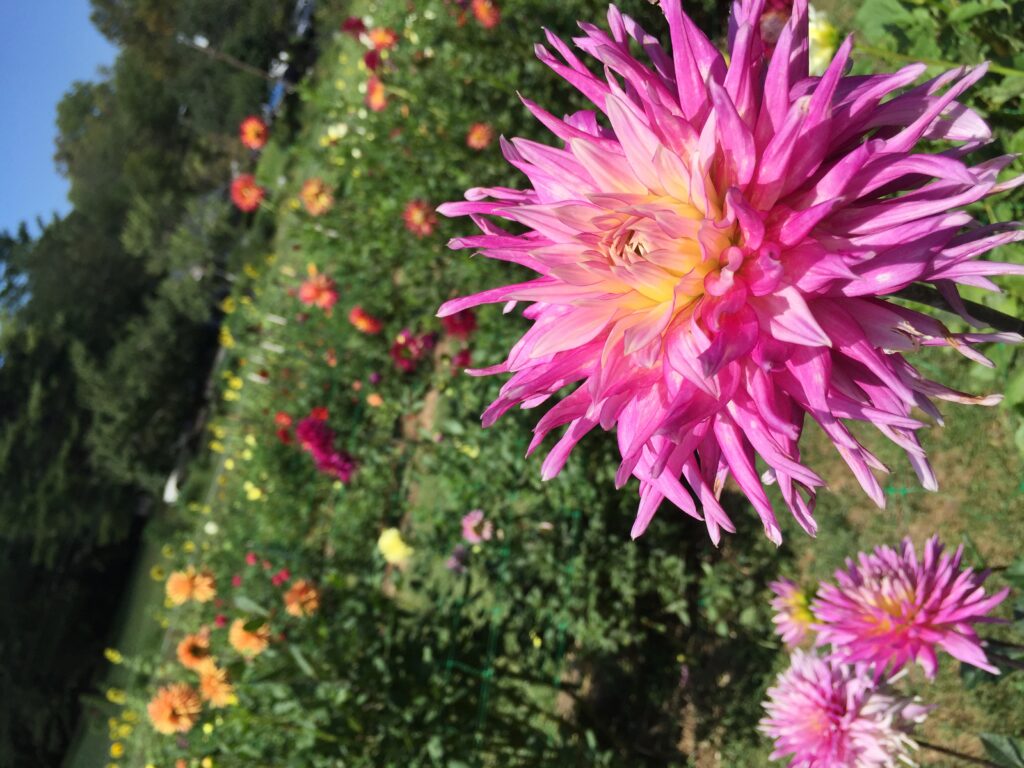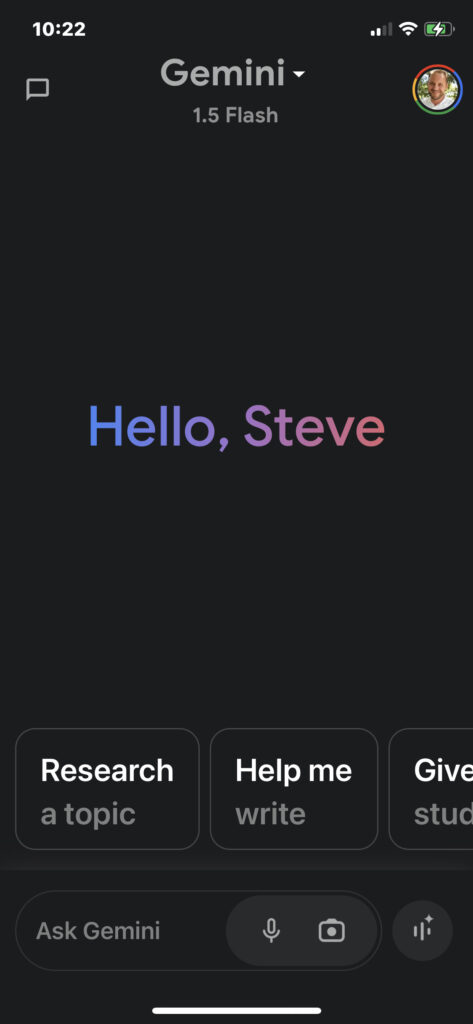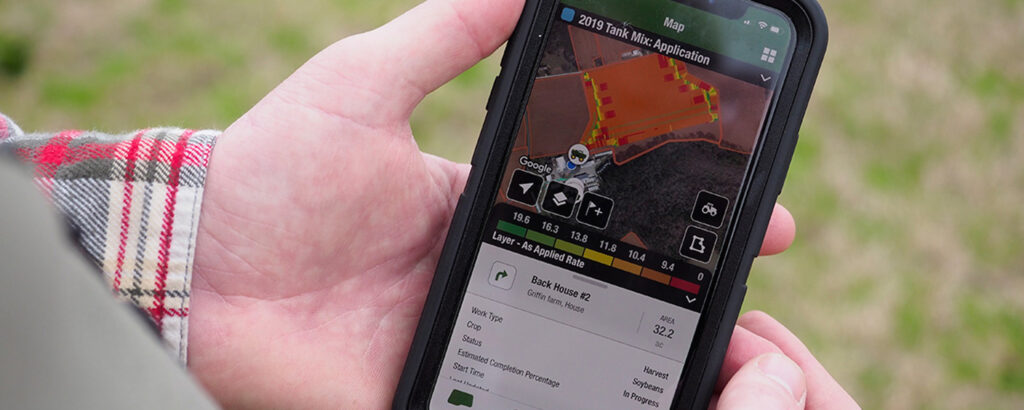How AI Tools Might Be Used in Gardening
go.ncsu.edu/readext?1047141
en Español / em Português
El inglés es el idioma de control de esta página. En la medida en que haya algún conflicto entre la traducción al inglés y la traducción, el inglés prevalece.
Al hacer clic en el enlace de traducción se activa un servicio de traducción gratuito para convertir la página al español. Al igual que con cualquier traducción por Internet, la conversión no es sensible al contexto y puede que no traduzca el texto en su significado original. NC State Extension no garantiza la exactitud del texto traducido. Por favor, tenga en cuenta que algunas aplicaciones y/o servicios pueden no funcionar como se espera cuando se traducen.
Português
Inglês é o idioma de controle desta página. Na medida que haja algum conflito entre o texto original em Inglês e a tradução, o Inglês prevalece.
Ao clicar no link de tradução, um serviço gratuito de tradução será ativado para converter a página para o Português. Como em qualquer tradução pela internet, a conversão não é sensivel ao contexto e pode não ocorrer a tradução para o significado orginal. O serviço de Extensão da Carolina do Norte (NC State Extension) não garante a exatidão do texto traduzido. Por favor, observe que algumas funções ou serviços podem não funcionar como esperado após a tradução.
English
English is the controlling language of this page. To the extent there is any conflict between the English text and the translation, English controls.
Clicking on the translation link activates a free translation service to convert the page to Spanish. As with any Internet translation, the conversion is not context-sensitive and may not translate the text to its original meaning. NC State Extension does not guarantee the accuracy of the translated text. Please note that some applications and/or services may not function as expected when translated.
Collapse ▲ What is artificial intelligence and where are we now? AI is a tool that uses large amounts of data to learn. AI can analyze huge amounts of data and make recommendations or answer questions very rapidly. Self-driving cars, virtual assistants, medical diagnosis, law searches, DNA analysis and innumerable other uses.
What is artificial intelligence and where are we now? AI is a tool that uses large amounts of data to learn. AI can analyze huge amounts of data and make recommendations or answer questions very rapidly. Self-driving cars, virtual assistants, medical diagnosis, law searches, DNA analysis and innumerable other uses.
AI Personal Assistants are the way most professionals are interacting with AI currently. Organizing tasks and calendars, doing research, creating strategies, etc. help professionals do their work. Eventually everyone will in their everyday life. Actually, we already do use AI every day. Every time you ask SIRI a question or getting recommendations on our favorite entertainment apps, use a mapping app or get a spellcheck recommendation in your text message you are interacting with AI. Google, FB, Amazon, Tesla, Chat GPT and others are creating ‘LLMs or Large Language Models’ that scrape huge quantities of data from the world to help their AI learn.
I use Google Gemini. In fact, I used it to write this article. Google has always been at the forefront of collecting knowledge and Gemini taps right into that data. Google Lens is great for identifying objects from images. Google Photos stores and organizes your pics. Google Drive Suite organizes your business and work life with spreadsheets, word processors, and email integrating it all.
Here are some ways AI could assist home gardeners in the future:
(list generated with Google Gemini AI Assistant and edited by author)
Personalized Gardening Assistance:
- AI-powered gardening apps could analyze user preferences and site considerations (sunlight, space, desired plants) and provide personalized planting plans and maintenance schedules.
- Virtual gardening assistants could offer real-time advice on plant care, troubleshoot problems, and answer gardening questions.
Example:
* Input: Your climate, soil type, sunlight availability, and desired aesthetic (e.g., native plantings, pollinator friendly gardens, edible garden, flower bed, low-maintenance).
* AI Output: A tailored list of plants that will thrive in your specific conditions, with information on their growth habits, water needs, and potential pest issues.
Automated Watering Systems:
- Smart Sensors: Sensors could monitor soil moisture levels and weather conditions and make recommendations
- AI Controls: Controllers could adjust watering schedules in real-time based on plant needs and environmental factors. This would minimizes overwatering and ensures plants receive the optimal amount of water.
Pest and Disease Detection:
- Image Recognition: AI can analyze photos of your plants to identify potential pests or diseases (like powdery mildew or aphids) early on.
- Early Intervention: This allows for timely treatment, preventing significant damage to your plants.
Weed Control:
- AI-Powered Robots: There are AI powered robots that can mow lawns. One day robots may be able to identify and selectively remove weeds using cameras and machine learning algorithms. This would reduce the need for manual weeding and minimize the use of herbicides. Just like robot mowers, robot weeders may be working in landscapes soon.
Optimized Plant Nutrition:
- Soil Analysis: AI could analyze soil samples to determine nutrient deficiencies.
- Personalized Fertilization Plans: Based on the analysis, AI could recommend the right type and amount of fertilizer for your plants.
Harvest Predictions:
- Growth Monitoring: AI could track plant growth rates and predict harvest times more accurately.
- Planning & Preparation: AI could generate information that helps you plan for harvesting and storage, ensuring you get the most out of your garden.
Virtual Gardening Assistants:
- Chatbots: Would be available 24/7 to answer your gardening questions, provide troubleshooting tips, and offer expert advice.
- Personalized Care Reminders: Ai personal gardening assistants could send you notifications for watering, fertilizing, and other essential tasks.
While AI offers exciting possibilities, it’s important to remember that it’s a tool. Observing your plants, understanding their unique needs, and using your own judgment will always be crucial for successful gardening. Learning how plants work and how to identify them will always be useful to gardeners. Hopefully AI will help us become better gardeners!






